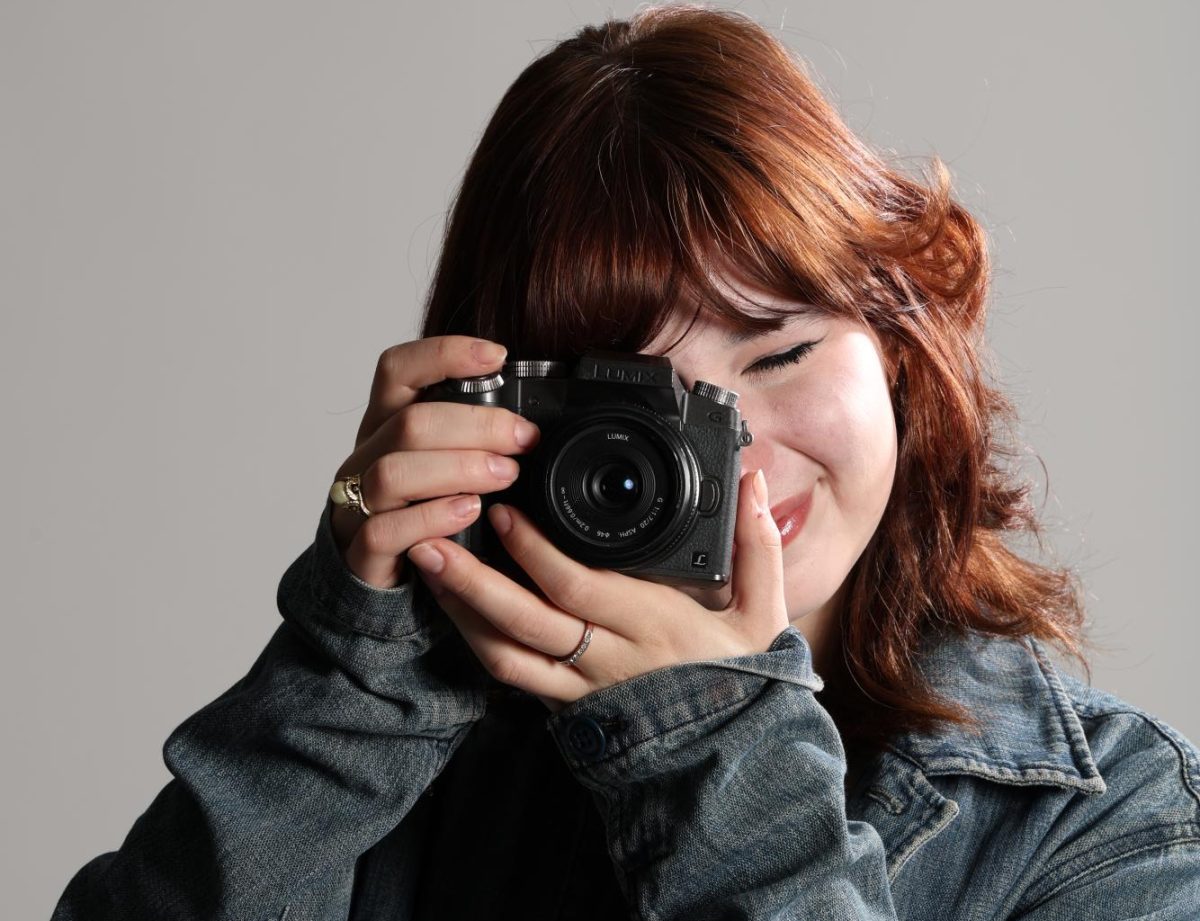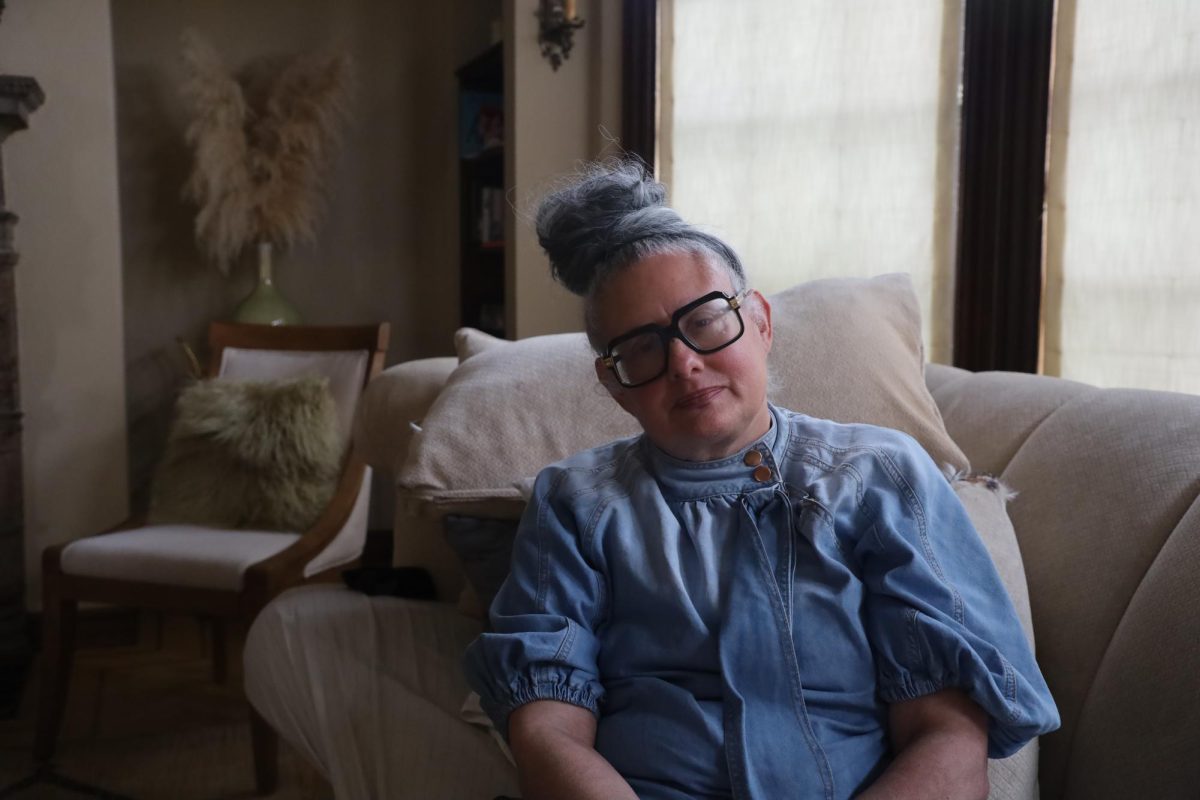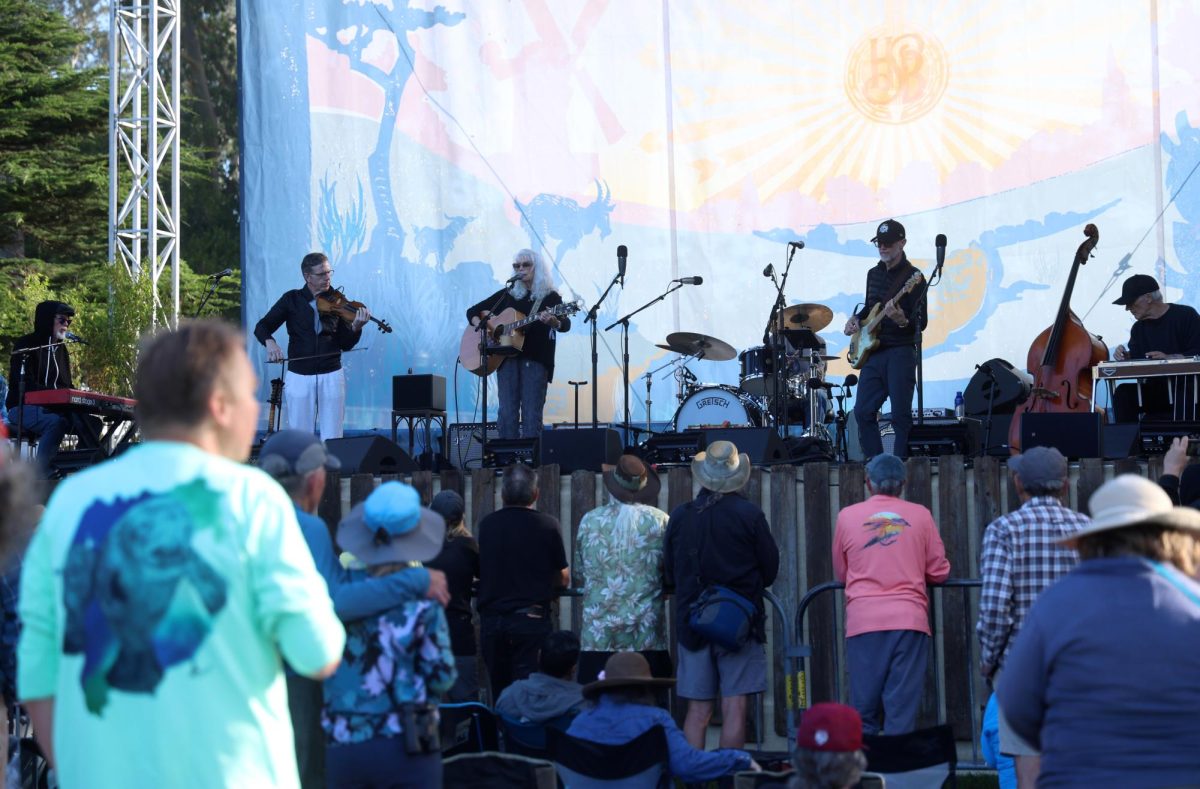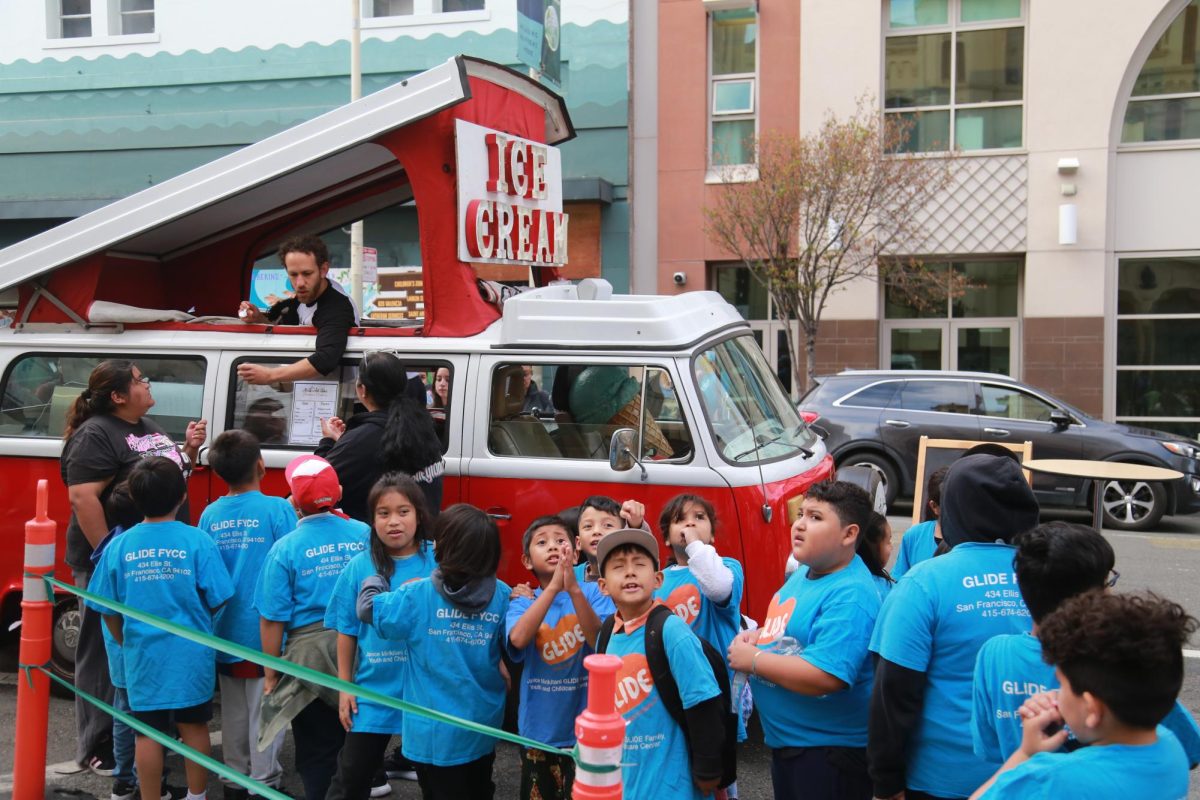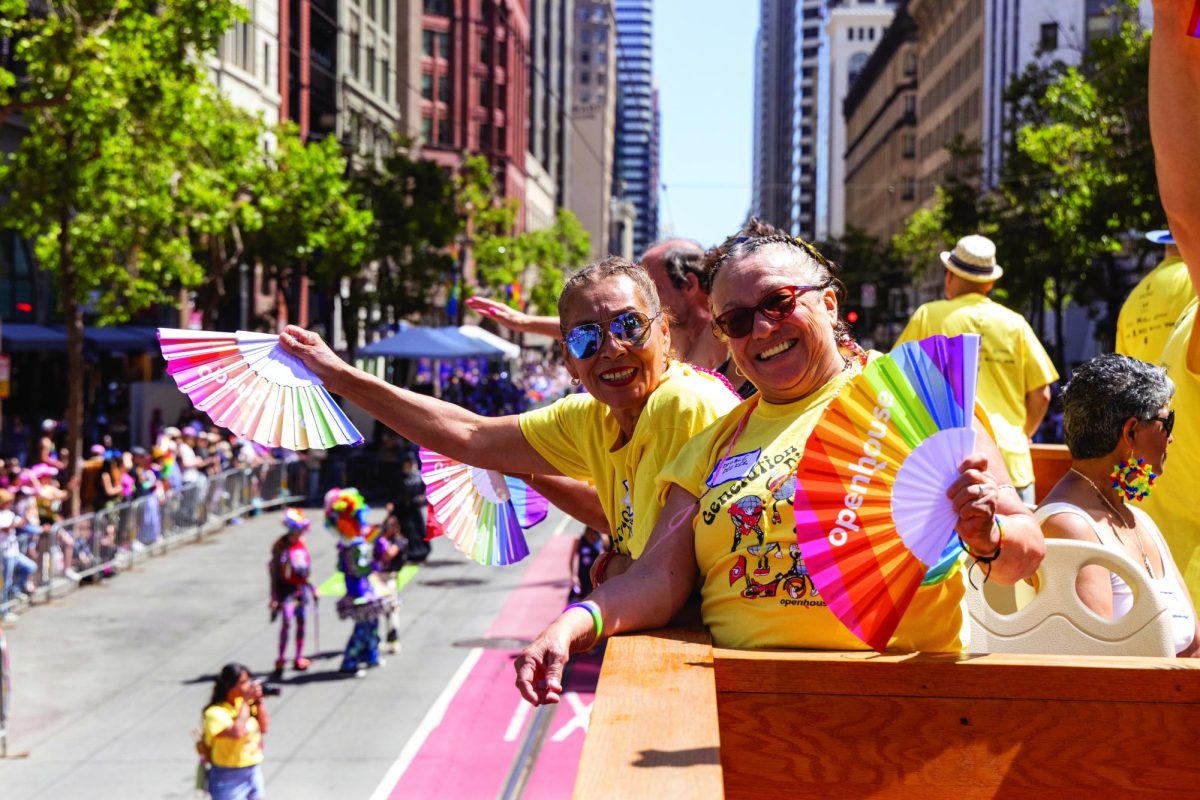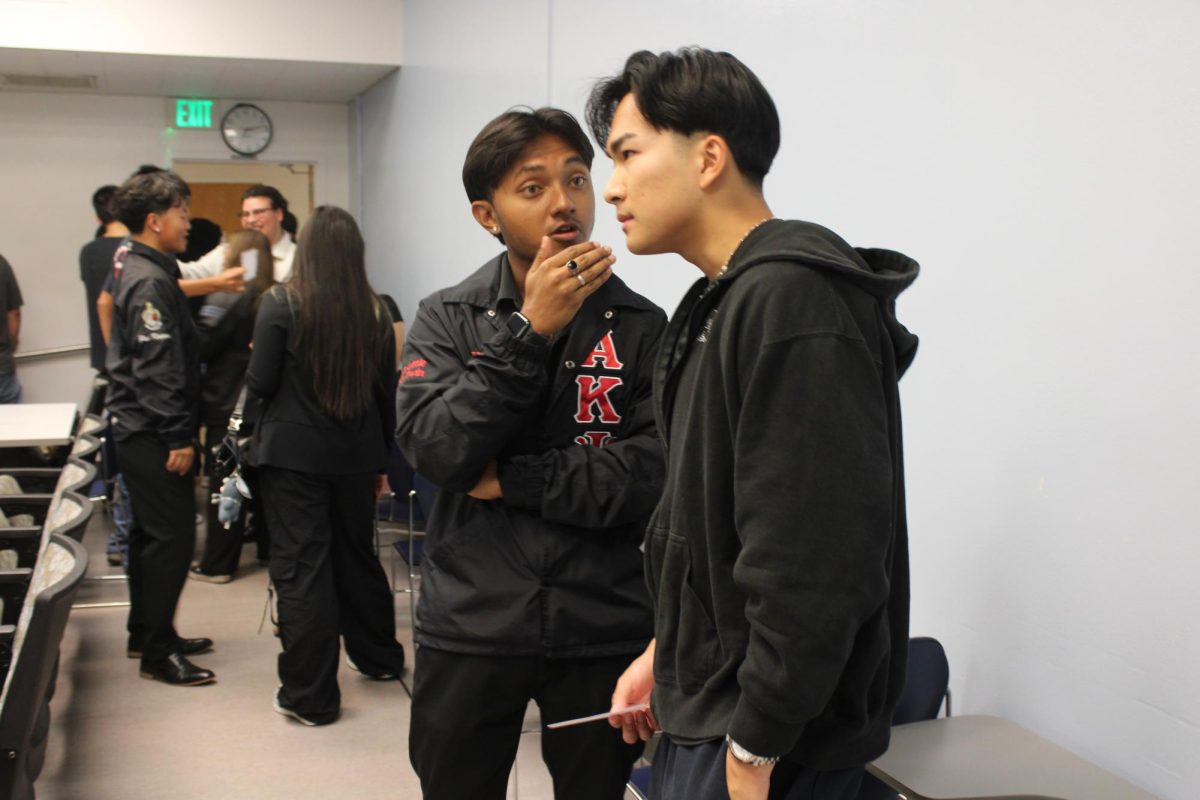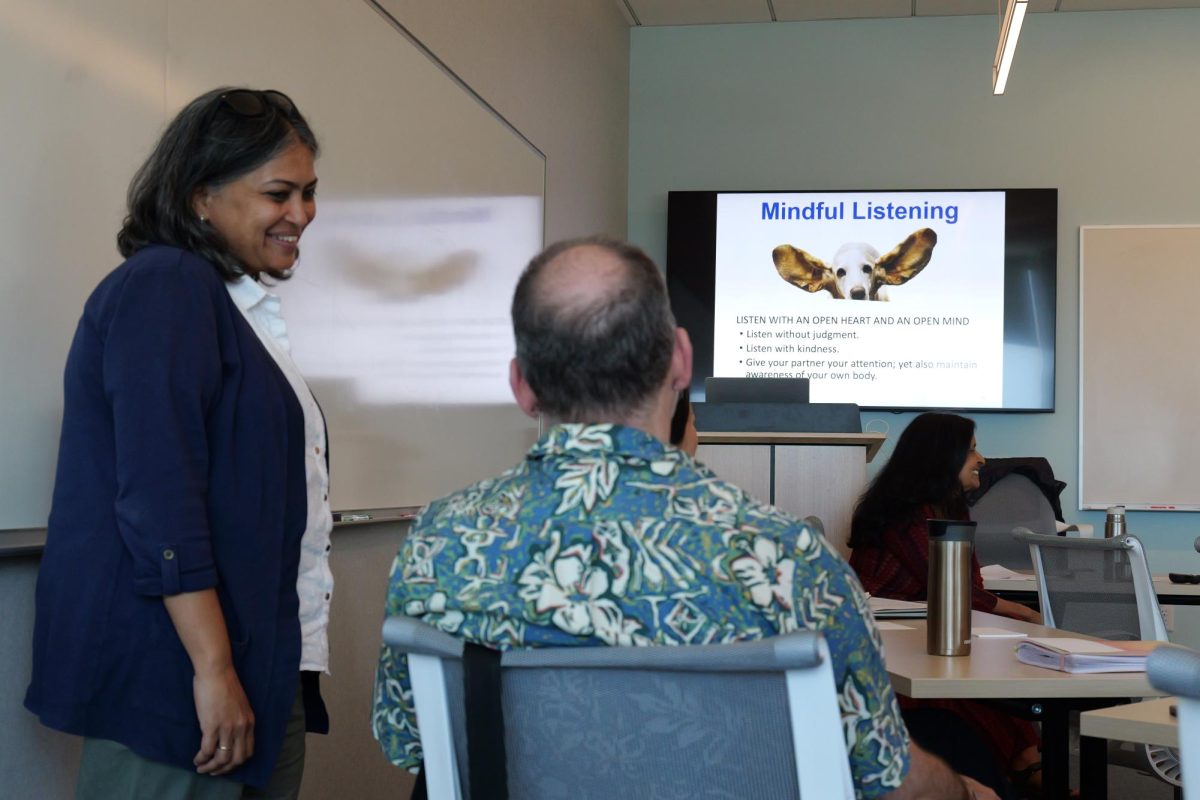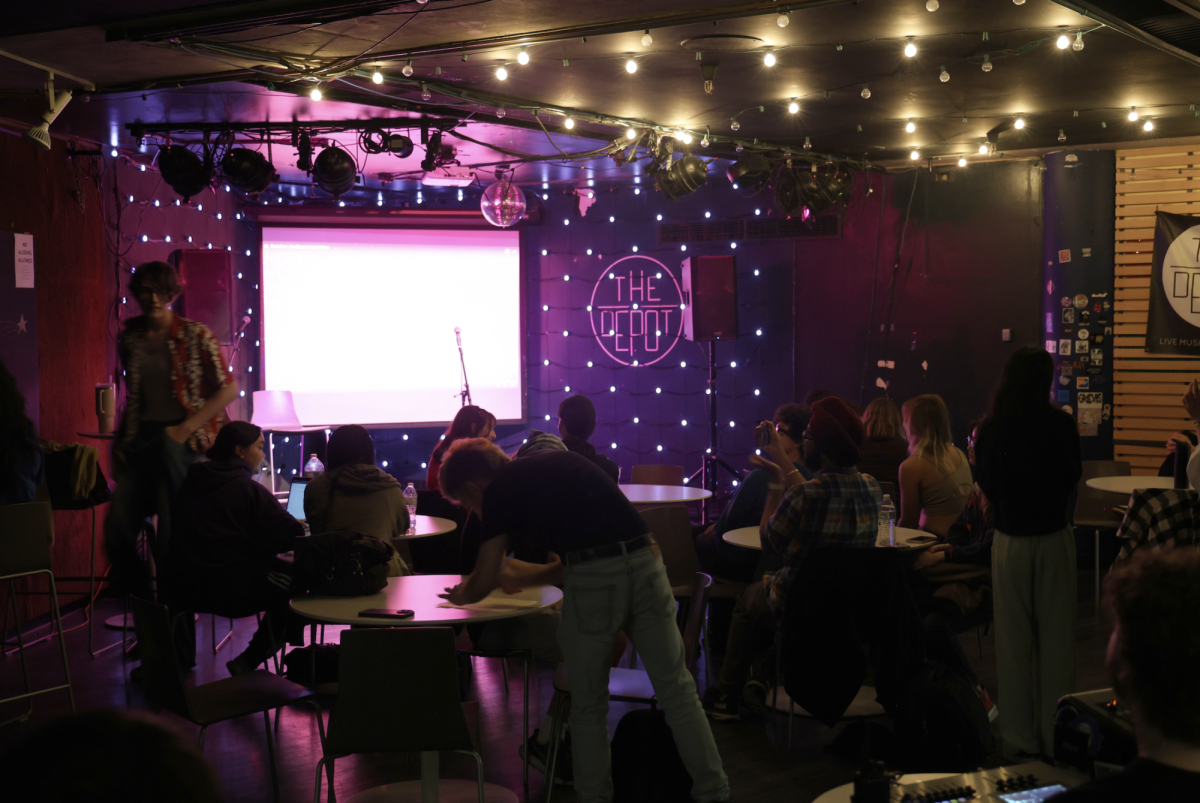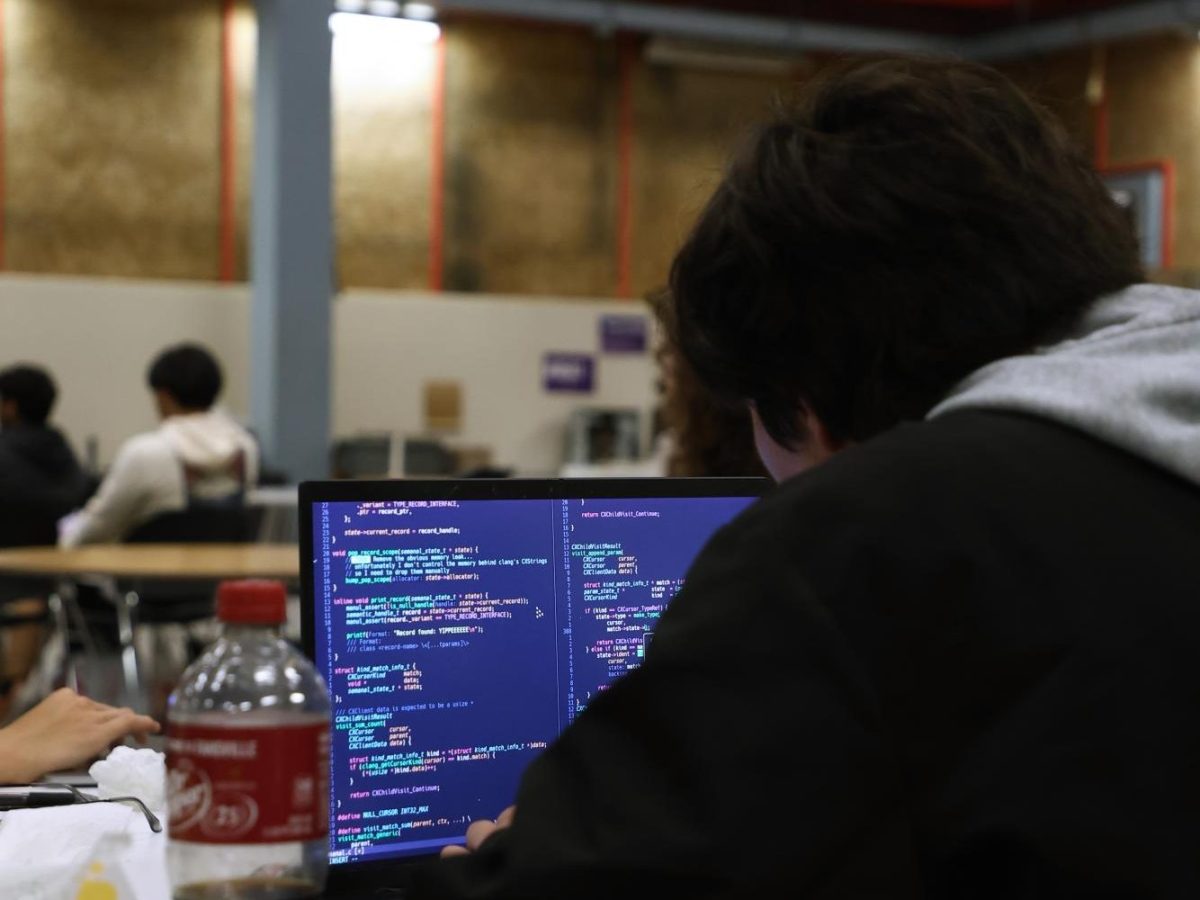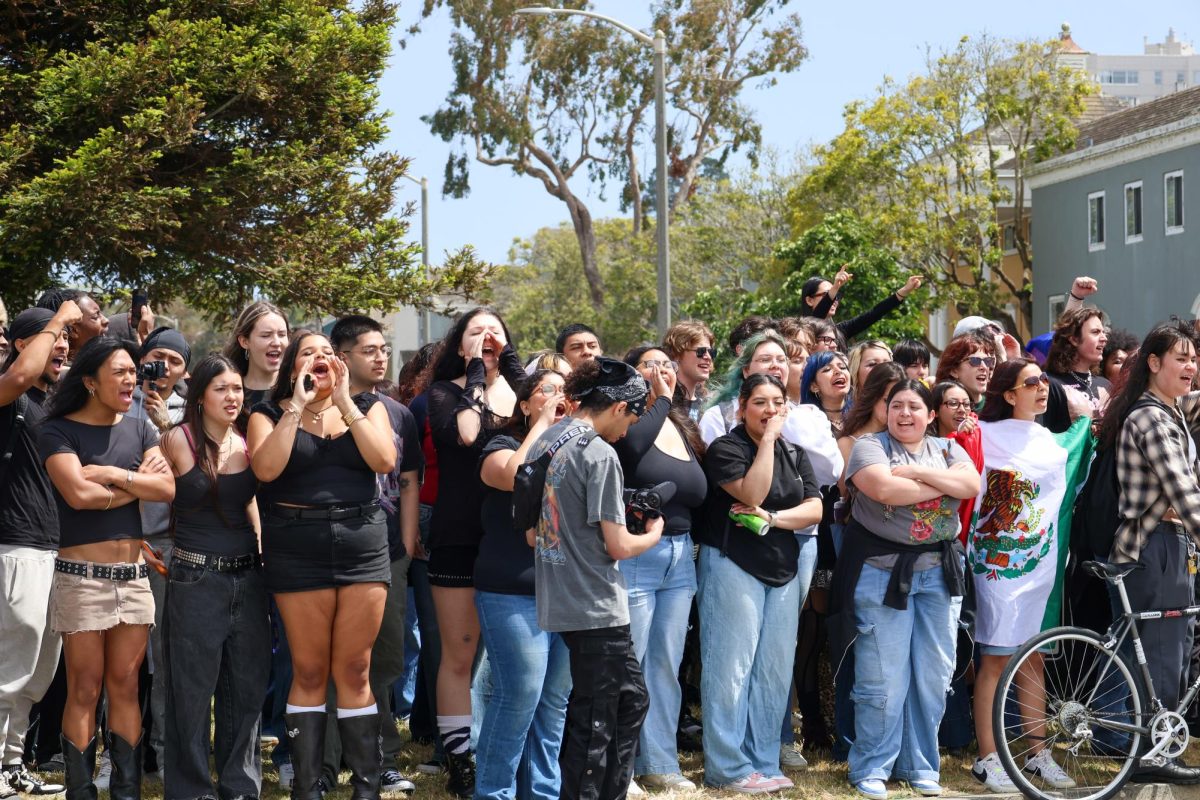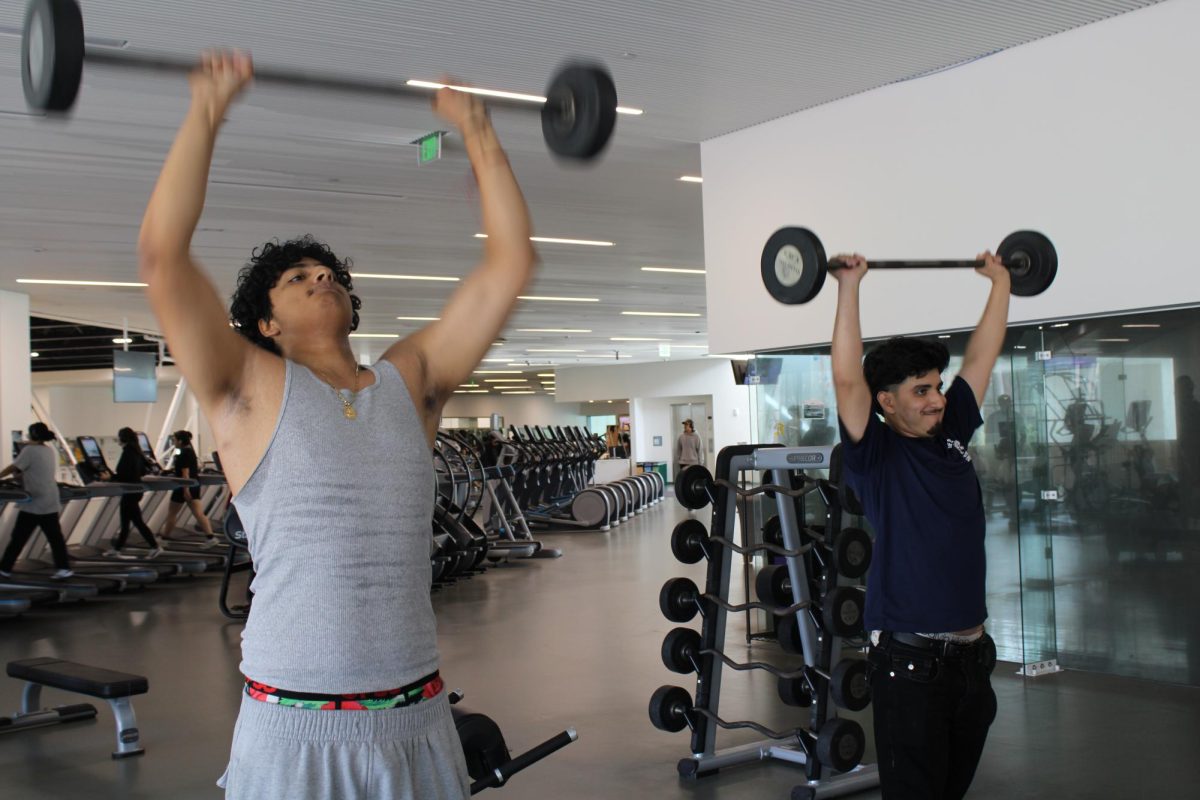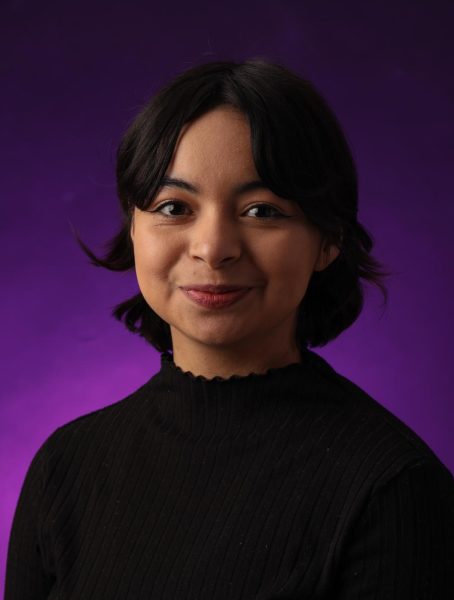When BECA (Broadcast and Electronic Communication Arts) major Sarah Burke moved to San Francisco from New York City, her biggest goal as a freshman was to find a club that would drive her out of her comfort zone.
“The sort of high school that I grew up in wasn’t very welcoming for that type of aspiration, if that makes sense,” Burke said. “It didn’t nurture that sort of dream.”
On top of COVID impacting her education during her senior year, Burke didn’t necessarily feel that the East Coast had many opportunities for students who were interested in media and broadcasting.
After attending SF State, Burke began to search for a film organization that would allow more connections within her interest, but after dipping her toes in each one, none seemed to work. She didn’t see herself in any of them – except the Feminist Filmmaker Fellowship (F3).
In the spring of 2024, Burke found out the Feminist Filmmakers Fellowship was electing new board members and decided to apply. She then became the PR and Marketing Manager.
“That’s what I appreciate the most [about F3], is that now I get to meet other women that care about the opening doors for the work for other women, and getting them into the hard roles and getting them in front of the screen, but also importantly behind the screen,” Burke said.
The Curation of F3 vs Now
“In a lot of film sets, there’s issues with mansplaining,” said Isabella Jennings, current President of the Feminist Filmmakers Fellowship. Jennings was previously one of the most consistent members, attending each meeting. Last semester, she decided to apply for elections.“Even if they’re directors, producers or women, male voices can sometimes just be so much louder,” Jennings said.
Through previous posts and videos of the club, Jennings recognizes that the fellowship was originally a more discussion-based club when initially created in 2020 by alumni, writer and director Jessica Payne. Previous webinars and workshops on directing films and group discussions can still be found on the Feminist Filmmakers Fellowship YouTube account.
“She [Jessica Payne] pretty much had the same vision where she wanted a club that was free of, you know, the male-dominated kind of energy that is associated with films,” Jennings said.
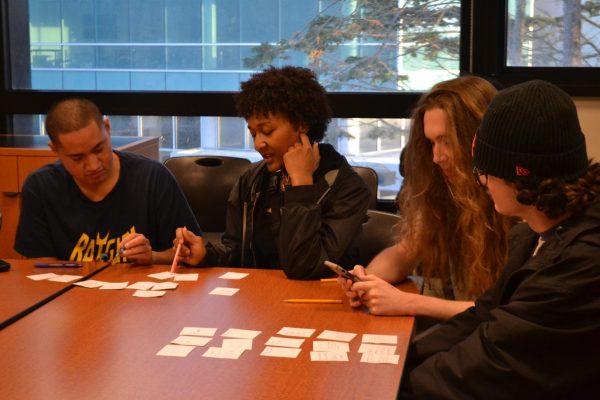
Five years later, F3 still thrives off of workshops alongside having their meetings and having guest speakers. Last semester, the club began its fellowship with smaller-based film projects for its members, which became bigger as the semester went on. The end of their spring semester will include a film project all members will take part in, in scripting and directing.
Members will pitch an idea for a film, go through the individual stories and choose one that seems most doable to produce depending on certain factors. From there, the entire club will be part of the crew and casting. F3 meets weekly in Cesar Chavez Student Center through activities such as presentations and break-downs on what makes a good movie and having guest speakers; members are given the environment to build each other up.
“Men are able to join, they’re free to,” Jennings said.“They’re welcomed there by our directors and producers, and all our bigger roles in the club are going to be women and non-binary people,” said Jennings.
Jennings recognizes the discomfort she’s felt on student film sets, in particular where she noticed a lack of women.
“Sometimes people make comments and take over productions,” Jennings said. “I feel like in this kind of space that isn’t supposed to happen, and everyone can do what they want to do without judgment from others, I guess.”
Member Grace Kelly also recognizes the difficulty of being in certain spaces or communities that do not embrace making mistakes and set skills.
“It’s kind of hard to do that [show knowledge of cinema] when you feel outnumbered in a lot of rooms that are filled with men and there’s just a certain ideology that it’s hard to kind of get over when you’re in that space,” Kelly said.
For Kelly, there’s a general sense of competitiveness in the film industry but one thing she’s been able to get out of the club is that it doesn’t necessarily have to be that way.
“I think it’s just really important to take advantage of the opportunity that we are still in school, and yet we still do have the freedom to pursue what we want,” they said.
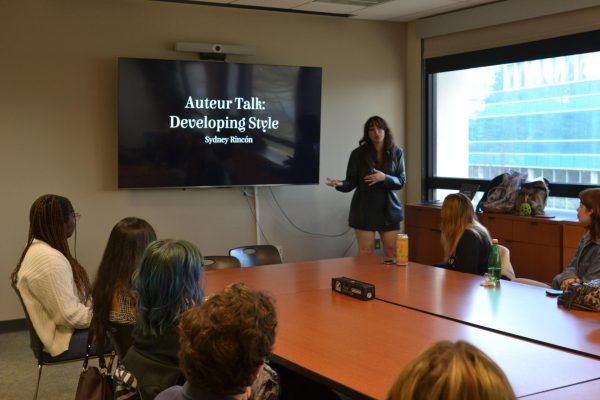
(Yoobin Shin/Xpress Magazine)
Michael Diaz joined the fellowship last semester after Jennings suggested he joined. He is a business and marketing major.
“As a man, I just want to be a helping hand,” Diaz said. “I let Isa (Jennings) choose who she wants to choose and any extra help that she might need, location wise, extra hands, extra rides. I like to help out where I could.”
Diaz says he finds it important to support and have a space like F3. Although he is not a cinema major, he’s heard that it’s not easy to find a group of cinema lovers who gear towards having such a free space, primarily garnered toward them. He describes it as a beautiful thing.
Challenging but Rewarding
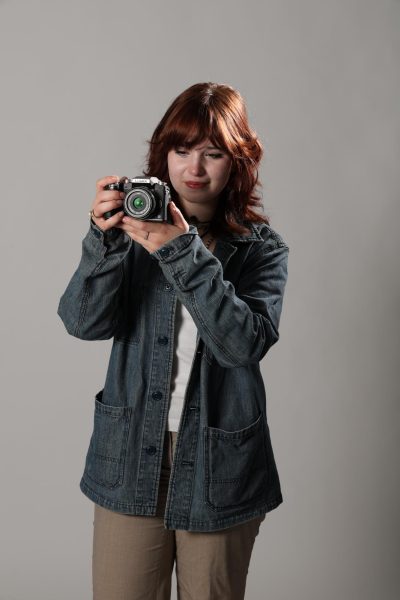
For cinema major and member Abigail Holman, film spaces can feel a little bit isolating. There are differences and creative processes in certain spaces, whereas in F3, Holman feels like she can make mistakes as opposed to masterpieces aiming for perfection.
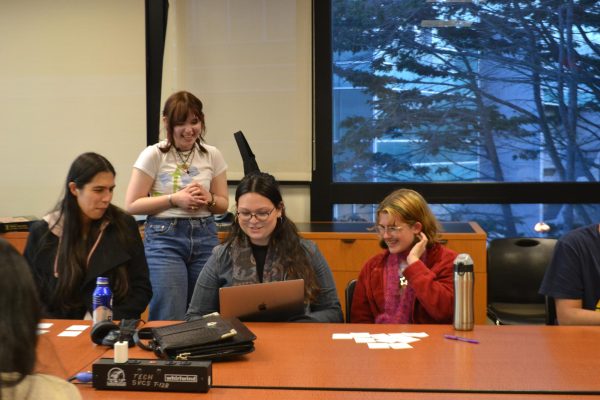
“I like the idea of balancing,” they said. “Taking myself seriously as a filmmaker, but also embracing just how things can be a little chaotic. I think just putting that in stories of just creativity could be serious, but also stories don’t have to be. They can be just a little bit more fun and silly.”
Although challenging, she says it’s challenging in a good, very open way.



